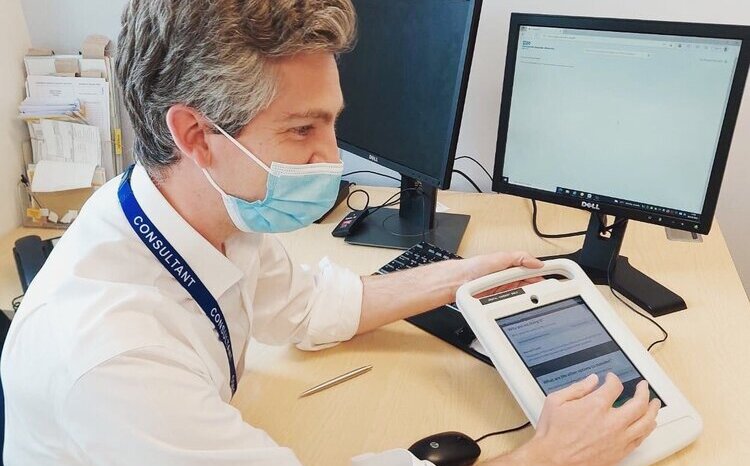Patient records may only be shared locally, say CfH
- 9 May 2006
Detailed electronic patient records will not be accessible outside the local groups of organisations that created them, in direct contradiction of the government’s vision of records available “wherever and whenever you need them”, it has emerged.
An internal document produced by Connecting for Health reveals that although its proposed consent model would allow clinicians across England access to detailed care records where appropriate, it will not be ‘feasible’ to access detailed records, even from within the same cluster.
A spokesperson for CfH confirmed that the document was correct and said that the summary record provided continuity of care outside local areas. She added: "It has always been the intention that detailed care records will not be accessible outside the local area."
The document, NHS CRS consent/dissent: information sharing rules, aims to clarify how information sharing will work with both the Summary Care Record and Detailed Care Record.
It says that where a detailed care record is held by another legal organisation in the same “instance” records will be available to view. However, where the organisation is in a different “instance” — either within the same cluster or where the organisation is in a different cluster — it will not be feasible to view the record.
The paper defines a legal organisation as one recognised in law, such as a GP practice or trust, and an “instance” as “a database and other technologies within one of the five NHS Connecting for Health clusters where information is potentially accessible by users from all the connected local organisations within the cluster.”
It adds: “Each cluster will have one or more separate “instances”. Each instance will connect to the central NHS Connecting for Health Spine but not allow users to access data from other instances.”
The limitations on access appear to be diametrically opposed to the Department of Health’s vision that as well as allowing clinicians instant access to summary information via the spine, the NCRS would allow access to aspects of patients detailed records where necessary from anywhere in England.
This vision is spelt out on Connecting for Health’s website which says: “More in-depth details will be held locally where most care is delivered. This will include detailed personal health information such as records of conditions, medication, operations, tests, X-rays, scans and other results. Links to local information will be available from the summary record.”
Dr Paul Thornton, a GP in Warwickshire who has been campaigning against the NCRS consent model, was sent a copy of the internal CfH document.
He told EHI Primary Care: “The confidentiality concerns remain and now it looks like we no longer have the advantages of the CRS either. Previously we had the treatment with the side effects and now it looks as if we’ll be getting the side effects without the treatment.”
In response to the document Dr Thornton has written a new paper, Paradoxical access, outlining his concerns. In it he says: “Large numbers of patients who live close to the boundaries between clusters will find that their GP in one “cluster” is unable to share a detailed care record even with the patient’s consultant in the local District General Hospital if it is in the adjacent “cluster”.
GPs may even be disconnected from cross boundary district nursing teams. Patients who travel for treatment are likely to be particularly affected. For instance, London and the home counties are served by different “clusters”.
Dr Thornton says that the document confirms CfH’s strategy for recording and sharing information which he claims is “contrary to patient choice and probably unlawful.”
Dr Thornton’s main concern is that patients will not be allowed to opt out of the NCRS altogether and a lack of clarity about how care will be delivered for those who do opt out. The document appears to suggest that consent arrangements for the detailed care record and summary care record will initially be based on an opt-out model. Earlier proposals for CfH suggested that the detailed care record would be accessible only after explicit patient consent.
The CfH spokesperson also confirmed that the same consent model would apply to the summary care record and the detailed care record. She added: "The process will be the same for the summary and detailed records. Patients will be informed of their options to limit access to their patient information through local initiatives and the public information campaign."
Two weeks ago Connecting for Health announced new arrangements for the summary care record with information abridged to just medications and allergies in the first instance in a text-based summary. Further details on how this will work have also now been published in a briefing paper on the CfH website.
A full updated document outlining the clinical development of the NCRS is due to be published in July.




